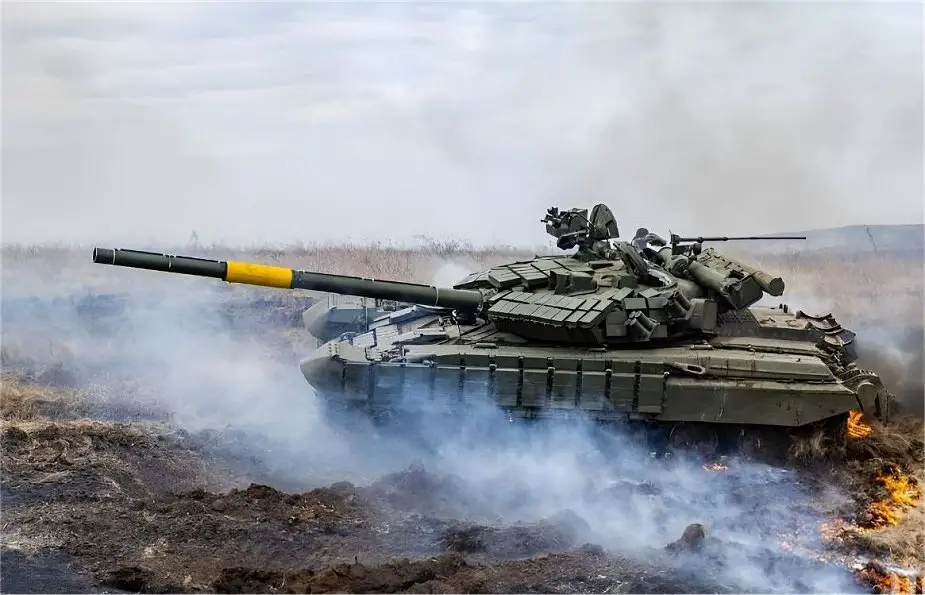- Army
- Conflicts in the world
- Israel - Iran conflict 2025
- Pakistan - India Conflict 2025
- Russia Ukraine War 2022
- Libya conflict day by day
- HAMAS - Israel War 2023
- Operation Serval in Mali French Army
- Sangaris operation Central African Republic
- Sangaris opération militaire République Centreafrique
- Ukraine - Russia conflict
- Syria conflict news
- Defence & Security Industry Technology
- Armies in the world
- Analysis Defense and Security Industry
- Conflicts in the world
- Navy
- Air
Increasing fragility on the Ukrainian front due to ammunition shortages
As of March 14, 2024, the situation on the Ukrainian front appears more precarious than it may seem, despite the relatively slow advancements of Russian forces across various sectors. The shortage of ammunition and other war materials, resulting from delays in the provision of US military assistance, could make the current Ukrainian front line more fragile, preventing offensive operations. Ukrainian commanders, to prioritize sectors most threatened by intense Russian offensive operations, might create vulnerabilities that Russian forces could exploit to achieve sudden and surprising advances if Ukrainian supplies continue to decrease.
Follow Army Recognition on Google News at this link

According to unnamed Ukrainian commanders, nearly all Ukrainian units and formations have to conserve their ammunition and materiel due to the overall shortage (Picture source: Ukrainian MoD)
According to interviews published by the German media Der Spiegel on March 12, with unnamed Ukrainian commanders, nearly all Ukrainian units and formations have to conserve their ammunition and materiel due to the overall shortage. Some units with limited resources can only maintain their current positions if Russian forces do not "attack with full force." Ukrainian Commander-in-Chief Colonel General Oleksandr Syrskyi warned of the threat of Russian units advancing deep into Ukrainian formations in unspecified areas of the front line.
Ukrainian forces are likely trying to mitigate problems caused by the ammunition shortage by prioritizing the allocation of ammunition to sectors facing large-scale Russian offensive operations. The diminished intensity of Russian offensive efforts against currently deprioritized sectors likely conceals the risks to Ukrainian forces in those areas due to ammunition shortages. Indeed, Ukrainian forces can only defend their positions as Russia advances.
Russian forces hold the theater-wide initiative and will be able to determine the timing, location, and scale of offensive operations as long as they retain this initiative. Statements by Syrskyi and Ukrainian commanders suggest that an intensification of Russian offensive operations in an area where Ukrainian forces have not prioritized allocating already limited ammunition supplies could lead to a Russian breakthrough and destabilization along a previously stable sector of the front line in a short period.
Therefore, the current front line is likely not stable, and timely Western support for Ukrainian troops is crucial to prevent Russia from identifying and exploiting an opportunity for a breakthrough on a vulnerable sector of the front. However, this support is becoming increasingly complicated as the conflict continues.
President Biden is weakened, and even though new aid has been granted in recent days, the United States is beginning to strain its means as it faces difficulties replenishing its weapon stocks, which will necessarily lead to a reduction in aid sent to Ukraine. This situation is exacerbated by the multiplicity of tension zones worldwide, to which the United States provides financial and material support, as well as by the rapidly approaching American elections. In Europe, countries are divided over the continuity of aid; while Eastern European countries are relatively in favor of increasing these shipments, others call for more restraint, and Germany, in particular, remains opposed to sending Taurus missiles.
News Russia Ukraine War


























